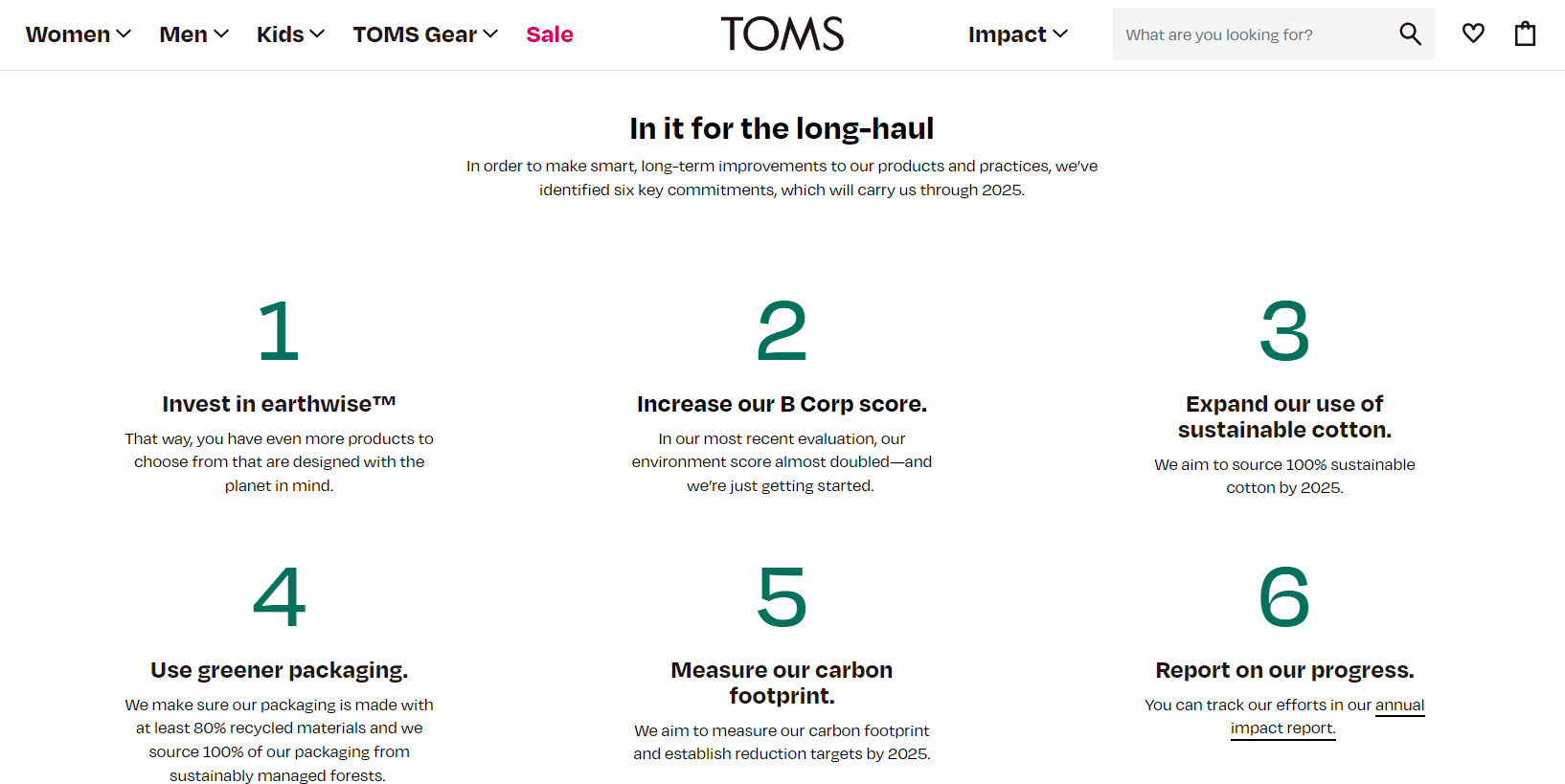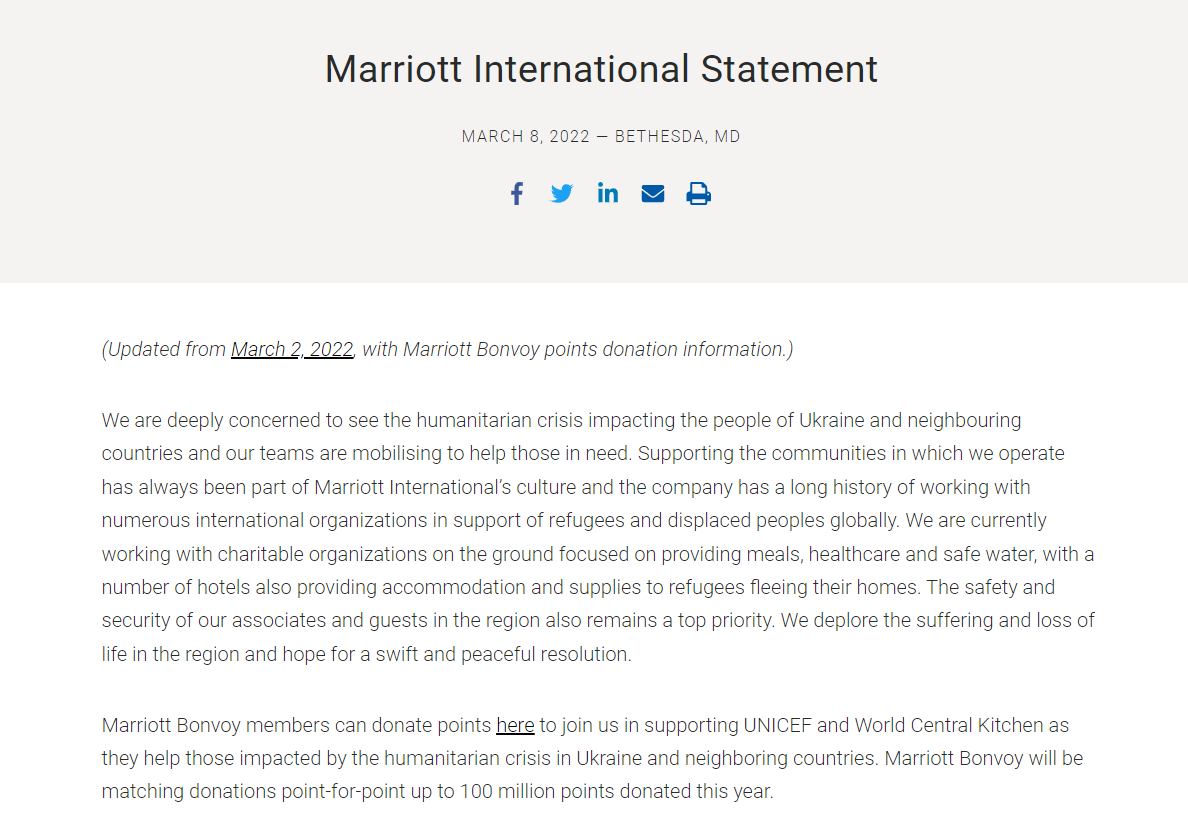From eco-friendly packaging to corporate philanthropy, many brands are now incorporating social responsibility business plans. One reason is the increasing consumer demand for sustainable products and socially responsible brands in response to the worsening global warming phenomenon.
A 2022 survey showed that two-thirds of consumers are willing to spend more on sustainable products. Another study found that online searches for sustainable goods increased by 71% from 2016 to 2021, with the COVID-19 pandemic contributing to this growth. Brands in the cosmetics, pharmaceutical, fashion, and food industries respond the most to these searches.
The common denominator across these trends and numbers is the concept of responsible marketing. The idea is that businesses make a profit while making a positive difference, a balancing act that businesses are expected to manage effectively in this day and age.
Read on to find out more about responsible marketing and how you can effectively integrate this strategy into your marketing policy.
What is Responsible Marketing?
Responsible marketing is an advertising strategy where a brand takes into account the environmental impact of promoting its products or services. Also referred to as green marketing, this approach involves addressing social, ethical, and environmental issues through the use of sustainable marketing materials and the promotion of eco-friendly initiatives.
It’s important to note, however, that responsible marketing should not be seen as a mere strategy to attract customers. A 2021 survey noted that 88% of consumers consider authenticity a key factor when deciding what brands to support. Across generations, millennials and Gen Z consumers expect brands to look beyond their profits and consider the best interests of society.

Socially Responsible Marketing Examples
Various brands have started implementing socially responsible marketing strategies, making them effective case studies for other brands. Here are some examples you can take inspiration from.
1. Green branding
Green brands are businesses that follow environmental conservation and sustainable practices. They either create products using biodegradable or recyclable materials or offer their services in ways that produce less harmful emissions.
One example of a green brand is IKEA. The home furnishings retailer designs circular products to ensure they remain useful for many years. They also use materials and food ingredients with low carbon footprints and encourage suppliers to use 100% renewable energy. Through these efforts, IKEA aims to become a climate-positive business by 2030.

Another great example of green branding is TOMS, which uses organic and recycled materials to create its shoes. Its multitude of certifications are a testament to its efforts in upholding ethical and environmental responsibility in marketing products.
2. Use of carbon-neutral packaging
Thirty-six percent of all plastic produced is used for packaging, 85% of which ends up in landfills. For this reason, many brands choose to use carbon-neutral packaging to reduce their carbon footprint while attracting socially responsible consumers.
Take the cosmetics brand Lush, which sells shampoo, conditioner, and bubble baths without packaging. They place liquid products like creams and exfoliators in tubs, tins, and bottles made from recycled materials. Customers can reuse these containers or return them to Lush stores in exchange for a free product or discount.
Electronics brand Samsung also uses eco-friendly packaging as part of its commitment to sustainability. Instead of plastic and shrink wrap, the brand uses packaging sourced from renewable biomaterials. Its display boxes are also made of recycled materials, which customers can repurpose into consoles, cat houses, magazine racks, or even side tables.
3. Directing portions of profits toward charitable causes
Donating to charitable causes is another form of responsible marketing. Besides practicing sustainability within their organizations, some brands likewise allocate resources to create an impact on a bigger scale.
The coffee company BLQK Coffee, for example, donates 25% of its profits to Black communities in the United States and organizations working toward social justice. Its founders took inspiration from the 2020 George Floyd protests, using the brand as a channel to make a difference.
The hospitality industry is also catching up with responsible marketing. For instance, Marriott developed a program where members can earn points from booking any of its hotels and donate their points to Marriott’s partner organizations, such as UNICEF and the World Central Kitchen.
4. Promotions that spread awareness of societal issues
Some brands use their influence and wide reach to raise awareness of social issues and encourage collective action. For instance, Nike tackled racism in 2020 in the wake of George Floyd’s death. It published a video that began with the words “Don’t Do It,” a twist on its famous slogan.
Tommy Hilfiger also promoted diversity, individuality, and social good with its “Moving Forward Together” campaign in 2021. It hired creatives and social activists as models and used sustainable materials and production techniques to market its Spring 2021 collection.
5 Reasons for Brands to Embrace Responsible Marketing
1. It’s better for the environment
Whether you’re working with environmentally conscious suppliers or replacing plastic packaging with biodegradable alternatives, adopting eco-friendly marketing practices could significantly save the environment in the long run.
Climate change worsens yearly, mainly due to business-driven economic activities. It’s more important than ever for brands to realize their power in mitigating the environmental impact of their products and services and eliminating processes that harm the planet.

2. Improves customers’ perception of your brand
Brand image is everything. While you can’t possibly please every customer, adopting responsible marketing tactics can at least help you establish and retain a strong customer base.
A 2021 study found that 88% of consumers prioritize buying from companies with ethical sourcing strategies. Another 83% said they’re willing to pay more for an ethically sourced product.
Indeed, employing socially responsible marketing strategies is the way to go if you want to help protect the environment, boost your brand image, and win more customers.

3. Helps build customer trust
Two of the fundamental elements of responsible marketing are authenticity and honesty. Without these values, you risk ruining your brand image and losing your customers.
In today’s digital age, it’s easy to spot a brand that only uses environmental causes to gain exposure and make a profit. When you employ authentic responsible marketing strategies, you can gain your customers’ trust in the long run and even encourage them to participate directly in your efforts. Being honest with your advocacies and efforts will also boost your industry reputation, making other conscious brands trust and work with you.

4. Lowers production costs
Responsible marketing could also help reduce production expenses, helping brands save on costs. For instance, using eco-friendly and locally sourced raw materials could help lessen packaging costs. Turning to renewable energy sources such as wind and solar also is also cost-efficient as they are readily available and higher subsidies than oil, gas, or coal, not to mention they emit little to no greenhouse gases.

5. Helps avoid potential legal issues
Besides environmental protection, responsible marketing also concerns complying and keeping up to date with regulations and legal policies regarding ethical business practices. For example, collecting consumer data with consent helps you avoid potential legal issues regarding data privacy.
Also, disclosing what type of information you collect and how you use consumer data keeps you away from lawsuits concerning data protection.

How to be a Responsible Marketer: 4 Factors to Consider for a Socially Responsible Marketing Policy
1. Ethical considerations
Being a responsible marketer means following ethical business practices in all aspects of your operations. This includes opting for recyclable materials when creating, packaging, and distributing your products.
Providing truthful product information online, observing cultural and religious sensitivities, and following data privacy laws are also ethical practices you must observe for your marketing policy to be socially responsible.

2. Data stewardship
A socially responsible marketing policy must also integrate measures to protect consumer data from potential data breaches and cyber-attacks. Conducting regular cybersecurity audits, putting a security protocol in place, and limiting access to your networks are some ways to secure your data.
Encrypting your communication channels and investing in cybersecurity insurance could also mitigate losses should an attack happen.

3. Waste management and sustainability
Waste is inevitable when running a business. However, there are ways to avoid contributing to pollution. One is by coming up with a waste management plan underscoring how you will incorporate the “reduce, reuse, and recycle” campaign into your operations.
You can also partner with trash and recycling collection contractors to improve and streamline your waste management efforts. Additionally, regularly conducting environmental impact audits allows you to assess how you procure supplies, offer your products or services, and manage your waste. From here, you could modify your existing processes and priorities to conform to the principles of sustainability.

4. Consumer choices
No matter how sound your marketing policy is, it will be ineffective if it does not align with your consumers’ preferences. Hence, it’s important to listen to what your conscious customers have to say as the success of your campaign depends on them. Their suggestions and feedback will also help improve your strategies, helping ensure they reflect what your buyers truly want.

Help Protect the Environment, Be a Socially Responsible Marketer
Developing and implementing a socially responsible marketing policy is not an easy undertaking. But while it entails investing resources and time, its benefits far outweigh the costs. Aside from helping you increase profitability and attract more customers, it enables you to contribute something towards protecting the environment.
The good thing about responsible marketing is that you don’t have to do it alone. If you need help marketing your brand ethically, Spiralytics has a pool of digital marketing experts who can help you reach your business goals.
Contact us today to learn more about our content marketing services!













